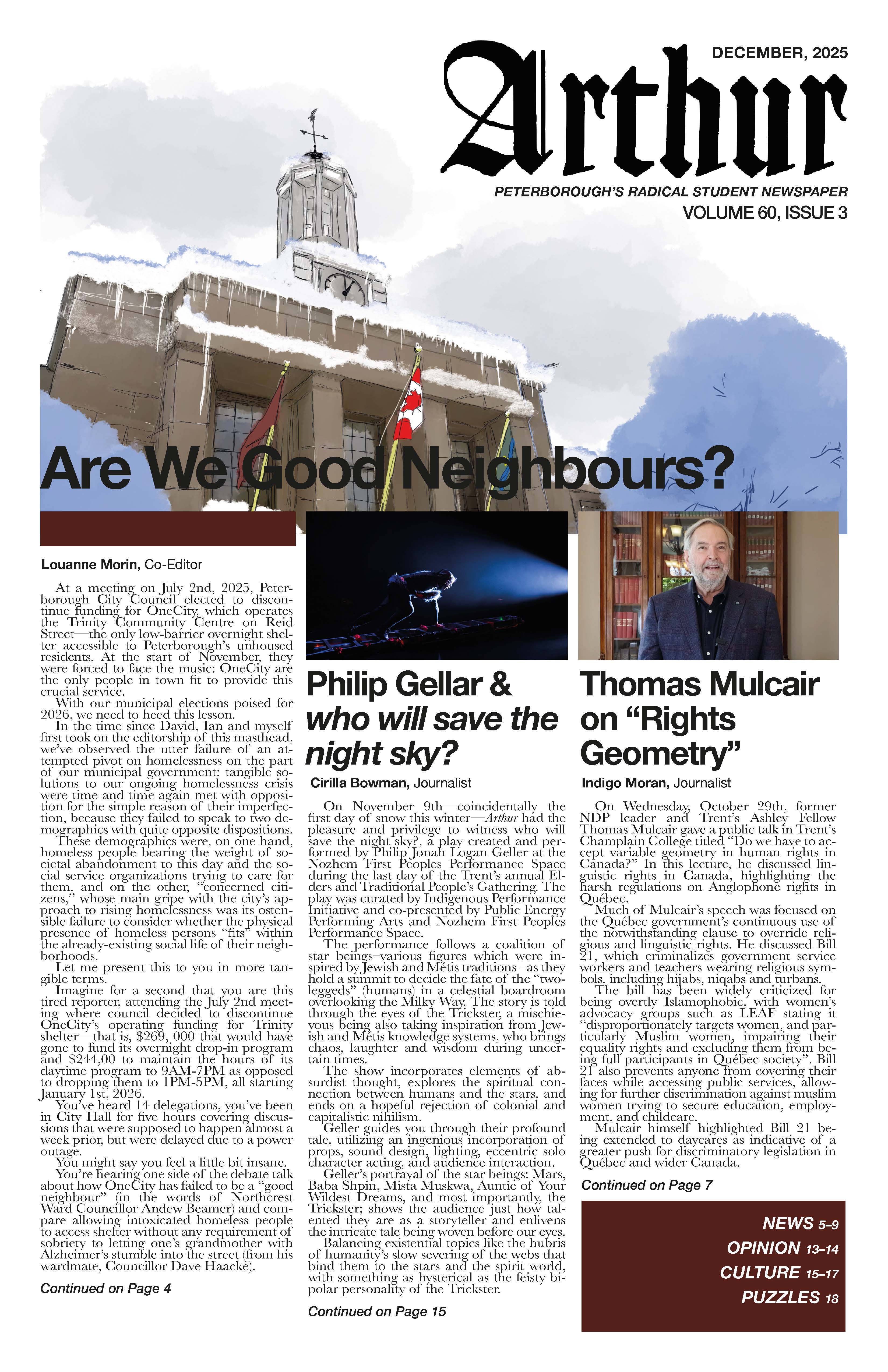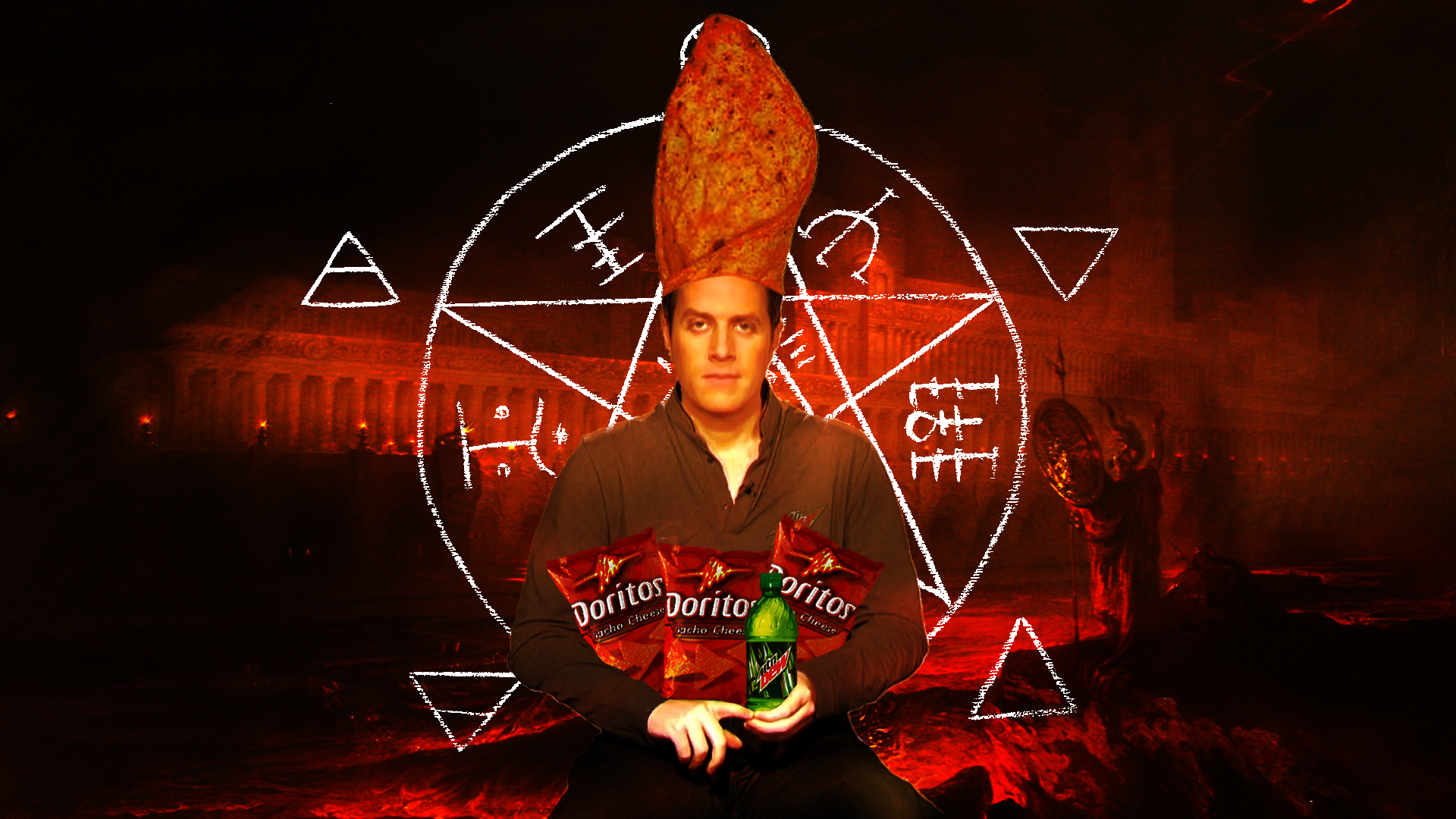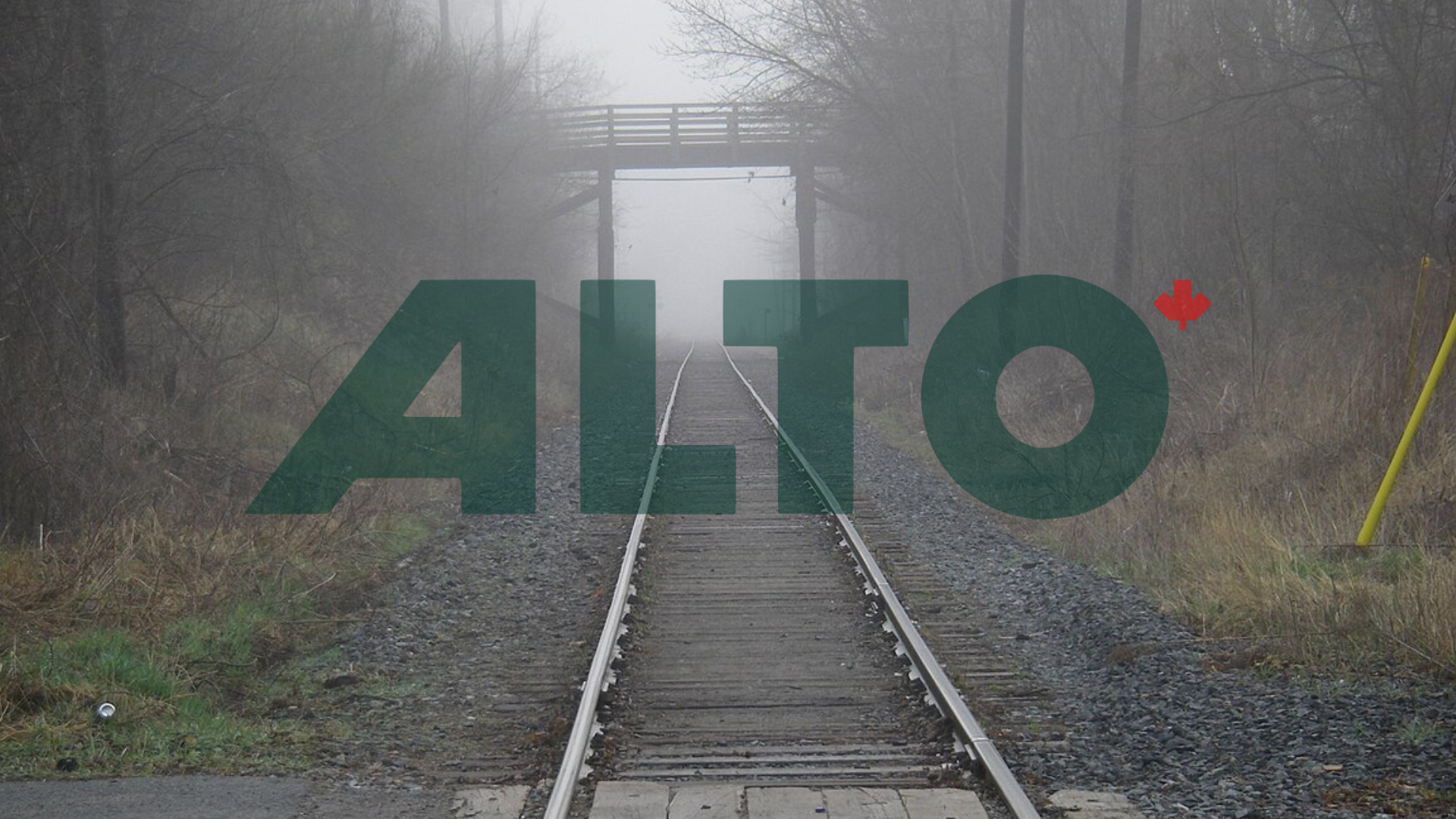The Trent Writers Reading Series wrapped up another great season at Traill College last Wednesday with a Bagnani Hall fully packed to welcome parliamentary poet laureate George Elliott Clarke.
The evening started with words from the English Department Chair, Dr. Hugh Hodges, thanking Dr. Lewis MacLeod for his work on this 28th season of Writers Reading Series. Dr. MacLeod then took the podium to celebrate a long list of Clarke’s work and accomplishments.
Clarke has published fourteen poetry texts, four verse-plays, three opera libretti, two novels, two scholarly essay collections, and two edited anthologies. His honours include The Governor-General’s Literary Award for Poetry (2001), The National Magazine Gold Award for Poetry (2001), The Dr. Martin Luther King, Jr. Achievement Award (2004), The Pierre Elliott Trudeau Fellowship Prize (2005), The Eric Hoffer Book Award for Poetry (2009). Appointed to the Order of Nova Scotia in 2006 and the Order of Canada in 2008, Clarke has also received eight honorary doctorates. His newest release is the novel The Motorcyclist (HarperCollins Canada), but immediately forthcoming are Extra Illicit Sonnets (Exile), and Gold (Gaspereau), a miscellaneous collection.
Clarke hails from Windsor, Nova Scotia, and his writing chronicles the black Canadian experience particularly in such maritime provinces as New Brunswick and Nova Scotia, a cultural sphere that he calls “Africadia.” Clarke is descended from American refugees fleeing the War of 1812 who settled in Nova Scotia. Clarke’s work is consequently rich in diasporic elements and entrenched in key parts of history that carved much of the Canadian narrative.
When asked when he first began writing, Clarke replied, “When I was fifteen. I shared my songs and poems with friends and family. I also wrote poems for my brother’s girlfriend… he asked me to write for him, so I did. That was my first professional gig. When I was in high school, my teacher, who was very supportive, thought I had some talent. She took me to meet a professor at Dalhousie University, who showed me a rejection slip. He said, “get used to these.” It was actually some great advice.”
Clarke’s poetic style is reminiscent of Alan Ginsberg’s stream of consciousness, evoking the raw energy of Charles Bukowski and the rich, romantic diction of Pablo Neruda. Clarke performed with power, his words coming to life as he hammered down each syllable so musically that one could imagine a frenzied jazz orchestra behind him.
Arthur asked Clarke what advice he had for young writers who don’t feel confident about sharing their work. “Share your work with your friends,” was the simple response. “Start a writing club. If you want to start sending your work to magazines or journals for potential publications, you can always use a pseudonym.” It wouldn’t technically be the writer getting rejected, joked Clarke, “but if you ever do get published, you can always add later, ‘here’s my real name, so you know who to make the check out to’.”
The parliamentary officer recited with eyes closed, sending the room into a liminal space of reality and storytelling, where Clarke’s voice was the guide and the images he painted were stark brush strokes subjective to each listener’s perspective.
There is a spark of ferocity and defiance in Clarke’s poems. In light of this, Arthur asked Clarke what he thinks the role and identity of the poet in our current era. This question inspired some political and philosophical tangents that provided insight into Clarke’s perspective of a post-Trump North America.
“[Poets are] hopefully the people who will tell the truth about what we see in going on right now. I mean, you can go back to Plato, to The Republic. Book 9, if I remember correctly. Socrates argues that society’s decline goes from monarchy down to tyranny. Awful tyranny. Along the way, after you go through democracy, he argues, you get plutocracy, which is the rule of the rich... in the recent election of the United States, this is that exactly that. It’s the victory of the wealthy. The fact that this president elect, I like to call him Delirium Tremens, the fact that Mr. Delirium Tremens has appointed a billionaire as one of his economic advisors is proof that the United States has degenerated into a plutocracy from a democracy.
“I hope that they can get back to being democratic as opposed to being controlled by the rich, who also control the media, thereby propagandizing against fact. They’re the ones running around saying it’s ‘post truth.’ It can only be post tuth if the people are not given the proper information. It can only be post truth if the people are able to hide the truth. Abraham Lincoln said it, ‘you can fool some of the people all of the time, you can fool all the people some of the time, but you can’t fool all the people all the time.’ It’s up to poets in part to take up the failure of journalists, the abject failure of journalists, to actually do research, check the history, look up facts and challenge untruth. That is our job, that’s what we have to do.”
These words rang through Bagnani as the audience trickled out into a reception at The Trend, where Clarke, professors, and students partook in drinks and food laid out by BE Catering. Clarke laid down one last poem in the warm comfort of The Trend, with an ode to Leonard Cohen.
George Elliot Clarke is an accomplished Canadian poet as well as the current parliamentary poet laureate whose work is a powerful exploration of Canadian identity from a black Canadian lens, stemming from the Maritimes and evoking a traditional poetic style mingled with prose and crafty storytelling.


.png)


.jpg)


.jpeg)



.jpg)

.jpg)









.png)